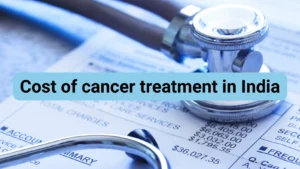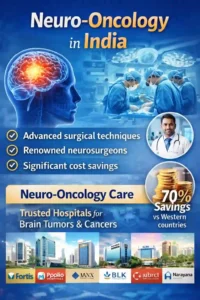Long-term Care and Outcomes: Recovery & Sexual/Reproductive Health after Intersex Surgery
Executive Summary: Defining Success with Long-term Care and Outcomes ✨
For individuals undergoing intersex-related surgeries, informed consent means fully grasping the entire journey—not just the operation itself. Success hinges on a clear understanding of the Long-term Care and Outcomes. You must establish detailed protocols for post-operative hormone replacement, understand potential needs for revision surgery (which is common in reconstructive work), and secure concrete plans for follow-up care spanning years, not just weeks. Before agreeing to a procedure abroad, ensure the surgeon transparently discusses the impact on functional and sexual health, prioritizing your Long-term Care and Outcomes.
Who is This For?
This guide serves as an essential resource for two groups: adult international patients with Differences in Sex Development (DSD) seeking surgical care, and the healthcare professionals and advocates who support them. It provides the framework for asking the right, often difficult, questions about life after surgery. Understanding the nuances of Long-term Care and Outcomes empowers patients to make ethical and deeply personal decisions, ensuring their long-term health and quality of life remain the top priority.
This discussion is particularly vital for those considering medical travel, where immediate, in-person follow-up care is geographically challenging. You must plan for continuity of care from the outset (See our clinic vetting guide).
The Critical Phases of Post-Operative Recovery
Recovery from intersex-related surgery, which can include genitoplasty, gonadectomy, or other procedures, is typically divided into short-term (initial healing) and long-term (functional integration) phases. Patients and their care teams must be prepared for both.
1. Short-Term Healing and Pain Management 🩹
The first few weeks post-surgery demand rigorous attention. Pain management protocols must be clear and adaptable. Furthermore, surgical sites in the genital area require specialized wound care and often involve dilation schedules or urinary catheter management.
- Length of Stay: Confirm the minimum recommended stay in the host country (usually 3–6 weeks for complex procedures) to ensure initial healing and complication management. Use our pre-travel checklist to plan logistics.
- Complication Readiness: Discuss the signs of infection, bleeding, or structural compromise. How will the international clinic provide emergency remote guidance or coordinate care if a complication arises once you return home?
Long-term Care and Hormonal Management 🩸
For many individuals with DSD, surgery is just one component of lifelong care. Hormonal management is often the most critical aspect of planning for Long-term Care and Outcomes.
Hormone Replacement Therapy (HRT)
If the surgery involves removing gonadal tissue (gonadectomy) to mitigate tumor risk or align with gender identity, HRT becomes non-negotiable for overall health, including bone density and mood regulation. Therefore, you must establish a seamless HRT plan.
| Factor | Post-Gonadectomy Reality | The Informed Consent Check |
|---|---|---|
| Hormone Status | Requires lifelong HRT (Estrogen or Testosterone). | Does the surgeon coordinate dosage with your home-country endocrinologist? |
| Bone Health | Risk of osteoporosis without adequate HRT. | Is a baseline bone density scan (DXA) recommended before surgery? (Internal link: Preventive Care Checkups) |
| Drug Availability | HRT medications vary greatly by country. | Will the clinic provide a 3-month supply and a legally valid prescription transferable abroad? Review WHO guidance on medicine supply chains. |
The continuity of hormonal care is fundamental to good Long-term Care and Outcomes. Any gap in care due to travel or lack of coordination can be detrimental, affecting everything from energy levels to cardiovascular health. The Endocrine Society highlights the long-term, specialized nature of this care.
Functional and Reproductive Outcomes
The conversation about achieving successful Long-term Care and Outcomes must center on what matters most to the patient: function and future family planning. Surgeries involving genital reconstruction inherently affect these areas.
3. Sexual Function and Sensitivity 💖
Ask the surgeon specific, direct questions about expected sexual outcomes, making sure the answer is based on data, not optimism. Just as accreditation standards are non-negotiable, functional expectations should be clearly outlined.
- Nerve Preservation: What techniques do they use to preserve erogenous sensitivity? The potential for reduced sensation is a real risk that requires full transparency for informed consent.
- Potential for Dyspareunia: If the surgery involves a vaginoplasty component, discuss the long-term necessity of dilation to prevent stenosis, and the expected pain level during intercourse. Proper preparation prevents future dissatisfaction.
Understanding the final sexual outcome is a critical measure of success for the patient, influencing their quality of life for decades. Therefore, the surgeon must provide realistic projections.
4. Reproductive Health and Fertility Preservation 👶
For many with DSD, the desire for biological parenthood may be complex or require advanced planning. The surgeon must fully explain the impact of the procedure on any remaining reproductive tissue.
- Fertility Preservation Options: If the procedure is gonadal-sacrificing (e.g., removal of testicles or ovaries), what are the options for gamete (sperm/egg) cryopreservation *before* the surgery? Our fertility pre-travel checklist helps here.
- Uterine/Vaginal Impact: For individuals with a uterus, discuss the impact of the surgery on potential future pregnancy via assisted reproduction (if applicable to their DSD). This requires coordination with a gynecological specialist.
Make sure the clinic provides clear references to accredited fertility centers if preservation is needed. Explore new methods in IVF to understand the potential for future family-building.
Case Study: Alex’s Post-Op Reality Check for Long-term Care and Outcomes
Hypothetical Scenario: Alex, 25, from Canada (Intersex Variation: Partial AIS)
Alex traveled abroad for a complex reconstructive procedure. The clinic excelled at the surgery but fell short on post-operative planning, jeopardizing their long-term health. Alex had a gonadectomy to reduce tumor risk, requiring lifelong HRT.
- The Pitfall: The clinic in Country Y provided only a two-week supply of testosterone, with a prescription that was rejected by the pharmacy in Canada due to international licensing issues. This created a four-week lapse in care.
- The Impact: The lapse caused mood disturbances, severe fatigue, and initial loss of bone density gains. Alex recognized that a true understanding of their expected Long-term Care and Outcomes was missing from the pre-operative discussion.
- The Lesson: Alex’s advocate then contacted the foreign clinic and demanded a formal, written transition plan, including the exact chemical formula and legal prescription documentation required by Canadian authorities. This delay and stress were avoidable with proper pre-travel planning. Always ask, “What is the plan B for my prescription?”
The successful integration of the surgery into your life depends on these detailed logistical plans. Ignoring the complexity of Long-term Care and Outcomes turns an elective procedure into a long-term risk.
Frequently Asked Questions (FAQ) on Long-term Care and Outcomes
We gathered 12 important and most-asked questions regarding Long-term Care and Outcomes after intersex surgery.
Q1: What is the biggest risk during the long-term recovery phase?
A: The biggest risk is a lack of continuity of care, specifically the failure to follow post-operative protocols (like dilation) or the interruption of essential hormone replacement therapy (HRT).
Q2: How many years of follow-up care should I plan for after complex intersex surgery?
A: You should anticipate needing specialized follow-up, involving both your surgeon and an endocrinologist, for the rest of your life, though the frequency of appointments will decrease significantly after the first year. Check global treatment regulations for standard recommendations.
Q3: Is revision surgery common in DSD-related procedures?
A: Yes, reconstructive surgeries in this area, like in complex rhinoplasty, often require “touch-up” or revision procedures over time to achieve optimal aesthetic or functional results. This is often planned, not a sign of initial failure.
Q4: How soon after surgery can I safely fly home?
A: While the surgeon makes the final call, a minimum of 2-3 weeks is usually required for wound stability. For complex abdominal or pelvic surgeries, it may be 4-6 weeks to mitigate the risk of deep vein thrombosis (DVT) and surgical complications.
Q5: What psychological support is needed long-term?
A: Long-term psychological support can help patients integrate the physical changes with their personal identity and manage any post-operative depression or body image issues. This is highly individualized.
Q6: If I need long-term dilation, what happens if I stop?
A: Stopping a prescribed dilation schedule can lead to vaginal stenosis (narrowing or shortening), which may impair sexual function and potentially require corrective surgery later. Adherence to this aspect is non-negotiable for positive Long-term Care and Outcomes.
Q7: Should I save tissue for potential future research or stem cell therapy?
A: This is an emerging field. Discuss biobanking options with your surgeon, particularly for gonadal tissue, before removal. Ensure you get written consent and a clear path for storage. The NIH website provides examples of ongoing research areas.
Q8: How does DSD surgery affect my ability to have a biological child?
A: The impact is highly dependent on your specific DSD variation and the type of surgery performed. Any procedure removing gonadal tissue will end the possibility of producing gametes (sperm/eggs) from those tissues. Counseling is essential beforehand.
Q9: What is the most reliable way to maintain my HRT supply abroad?
A: Have your home endocrinologist provide a detailed letter to the foreign clinic, and vice versa. Use normal outbound links like FDA drug regulations as a reference for the complexity of international prescription law.
Q10: Are there support groups specifically for post-operative intersex patients?
A: Yes, many international and local patient advocacy groups offer resources and forums for peer support. Ask your healthcare provider or psychological counselor for vetted, affirming groups.
Q11: How is the outcome measured years later?
A: Success is measured by long-term patient satisfaction, functional outcomes (sexual and urinary health), psychological well-being, and sustained physical health through effective HRT management. This holistic view defines excellent Long-term Care and Outcomes.
Q12: If I travel for a fertility-related DSD procedure, how is that different?
A: If the goal is fertility preservation or enhancement, the focus shifts to procedures like tubal surgeries or oocyte retrieval. The post-operative care centers more on hormonal stimulation cycles and IVF/ICSI success rates (see our ICSI cost guide).
***
For more detailed guides on intersex and DSD-related medical tourism:




